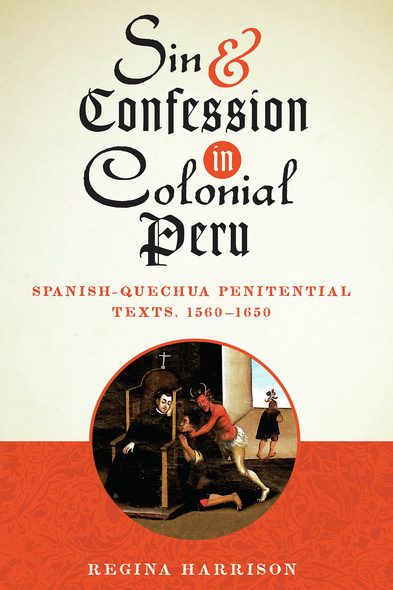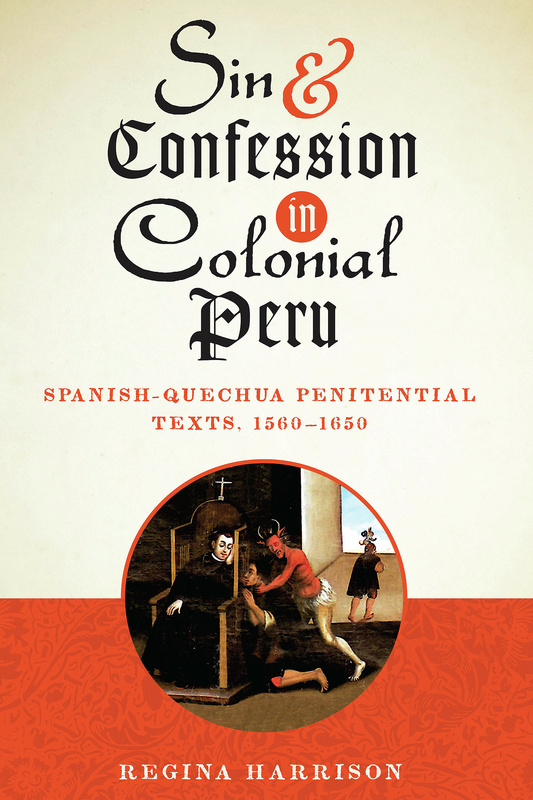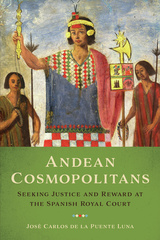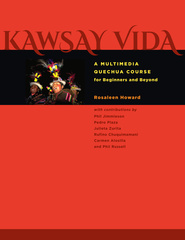Sin and Confession in Colonial Peru
Spanish-Quechua Penitential Texts, 1560-1650
A central tenet of Catholic religious practice, confession relies upon the use of language between the penitent and his or her confessor. In the sixteenth and seventeenth centuries, as Spain colonized the Quechua-speaking Andean world, the communication of religious beliefs and practices—especially the practice of confession—to the native population became a primary concern, and as a result, expansive bodies of Spanish ecclesiastic literature were translated into Quechua. In this fascinating study of the semantic changes evident in translations of Catholic catechisms, sermons, and manuals, Regina Harrison demonstrates how the translated texts often retained traces of ancient Andean modes of thought, despite the didactic lessons they contained.
In Sin and Confession in Colonial Peru, Harrison draws directly from confession manuals to demonstrate how sin was newly defined in Quechua lexemes, how the role of women was circumscribed to fit Old World patterns, and how new monetized perspectives on labor and trade were taught to the subjugated indigenous peoples of the Andes by means of the Ten Commandments. Although outwardly confession appears to be an instrument of oppression, the reformer Bartolomé de Las Casas influenced priests working in the Andes; through their agency, confessional practice ultimately became a political weapon to compel Spanish restitution of Incan lands and wealth. Bringing together an unprecedented study (and translation) of Quechua religious texts with an expansive history of Andean and Spanish transculturation, Harrison uses the lens of confession to understand the vast and telling ways in which language changed at the intersection of culture and religion.
What sets this book apart from other works on Andean conversion is its blend of European and Andean source material. The author and publisher should be congratulated also for the inclusion of original quotes. This will go a long way toward helping future scholars.
What sets this book apart from other works on Andean conversion is its blend of European and Andean source material. The author and publisher should be congratulated also for the inclusion of original quotes. This will go a long way toward helping future scholars.
. . . an informed and highly informative accounting and analysis of concepts of sin . . . and of the long-term ‘encounter’ between these traditions as Europeans first conquered the Inka Empire and then struggled to gain control over Andean people’s bodies, minds, and souls during early to mid-colonial times in the Andes. It is a book with a large and ambitious scope that demonstrates extraordinarily deep learning and close engagement with a range of highly esoteric texts from the period.
Regina Harrison is Professor of Spanish, School of Languages, Literatures, and Cultures; Professor of Comparative Literature, Department of English; and Affiliate Professor of Anthropology at the University of Maryland, College Park. She is the author of the award-winning Signs, Songs, and Memory in the Andes: Translating Quechua Language and Culture and Entre el tronar épico y el llanto elegíaco: simbología indígena en la poesía ecuatoriana siglos XIX y XX.
Preface
Introduction
1. Confession and Restitution in the Andes: Las Casas' Avisos y reglas
2. Converts to Confession: From Ychu- (With Straws) to Confessacu- (As a Christian)
3. Dictionary Definitions: Sin (Hucha) and Flesh (Aycha)
4. Codifying Sexuality: Huchallicu- (to Sin, Fornicate), Huaça- (to Have "Improper" Sex)
5. Confessing Commerce in the Plaza: Ranti-, Catu-, Manu-
6. Confessing Work and Laborers: Llamca-, Mit'a-, Mink'a-
Conclusion. Wills as Quasi-Confession: Testamentocta Quellca
Notes
Bibliography
Index







